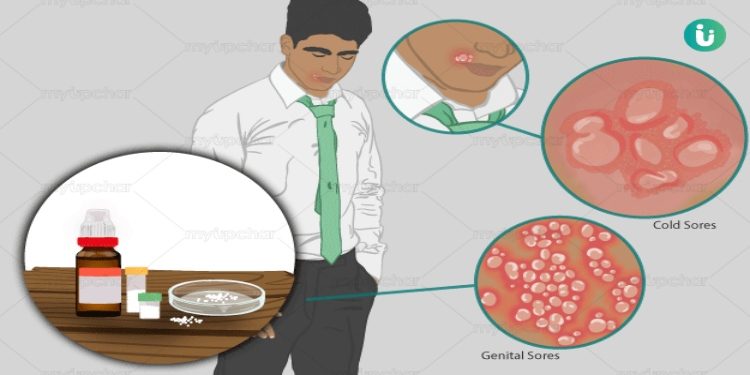Introduction
Living with herpes can be challenging, both physically and emotionally. The stigma surrounding the condition often leads to feelings of shame and isolation among those affected. However, with advances in medical research and treatment options, managing herpes symptoms and outbreaks has become more manageable than ever before. In this comprehensive guide from Post My Meds, we’ll delve into the world of herpes medication, exploring the various options available and providing valuable insights into symptom relief and management.
Understanding Herpes: Types and Symptoms
Types of Herpes
Herpes is a viral infection caused by the herpes simplex virus (HSV). There are two main types of herpes: HSV-1 and HSV-2.
- HSV-1: Primarily responsible for oral herpes, commonly known as cold sores or fever blisters.
- HSV-2: Typically associated with genital herpes, a sexually transmitted infection (STI) that affects the genital and anal areas.
Common Symptoms
Symptoms of herpes can vary depending on the type of virus and the location of the infection. Common symptoms include:
- Painful sores or blisters on the affected area
- Itching or burning sensations
- Swollen lymph nodes
- Flu-like symptoms, such as fever and fatigue
Available Medications for Herpes
Antiviral Medications
Antiviral medications are the primary treatment for herpes infections. These medications work by inhibiting the replication of the herpes virus, reducing the severity and duration of outbreaks, and preventing the transmission of the virus to others.
Commonly Prescribed Medications
- Acyclovir (Zovirax)
- Valacyclovir (Valtrex)
- Famciclovir (Famvir)
Antiviral Medications: How They Work
Antiviral medications for herpes work by interfering with the replication process of the herpes virus. They target specific enzymes and proteins essential for viral replication, preventing the virus from multiplying and spreading to other cells in the body. By reducing the viral load, antiviral medications help alleviate symptoms and shorten the duration of outbreaks.
Benefits of Herpes Medication
Symptom Relief
One of the primary benefits of herpes medication is symptom relief. Antiviral medications can help alleviate pain, itching, and discomfort associated with herpes outbreaks, allowing individuals to resume their daily activities more comfortably.
Prevention of Transmission
Antiviral medications also play a crucial role in preventing the transmission of the herpes virus to sexual partners. By reducing viral shedding and suppressing outbreaks, these medications help reduce the risk of infecting others.
Duration and Frequency of Treatment
The duration and frequency of herpes medication treatment can vary depending on several factors, including the severity and frequency of outbreaks, the type of medication prescribed, and individual response to treatment. In general, antiviral medications are most effective when taken at the onset of symptoms or as a suppressive therapy to prevent outbreaks.
Managing Herpes Outbreaks
Early Intervention
Prompt treatment at the first sign of a herpes outbreak can help reduce the severity and duration of symptoms. Antiviral medications are most effective when started early in the course of an outbreak.
Stress Management
Stress can trigger herpes outbreaks in some individuals. Practising stress-reduction techniques, such as meditation, yoga, and deep breathing exercises, may help prevent or minimize outbreaks.
Potential Side Effects and Risks
While generally safe and well-tolerated, herpes medications can cause side effects in some individuals. Common side effects may include:
- Nausea
- Headache
- Dizziness
- Fatigue
Rare but serious side effects may include allergic reactions or kidney problems. It is essential to discuss any concerns or side effects with a healthcare professional.
Alternative Therapies and Home Remedies
In addition to antiviral medications, several alternative therapies and home remedies may help manage herpes symptoms and outbreaks. These include:
- Topical Treatments: Over-the-counter creams or ointments containing ingredients such as docosanol or lidocaine may provide relief from pain and itching.
- Natural Remedies: Some individuals find relief from herpes symptoms by using natural remedies such as aloe vera, tea tree oil, or lemon balm.
- Healthy Lifestyle Habits: Maintaining a healthy lifestyle, including regular exercise, balanced nutrition, and adequate sleep, can help boost the immune system and reduce the frequency of herpes outbreaks.
Overcoming Stigma and Seeking Treatment
Living with herpes can be challenging, but it’s essential to remember that you are not alone. Seeking treatment for herpes is a proactive step towards managing the condition and improving your quality of life. It’s essential to educate yourself about herpes, seek support from healthcare professionals, and reach out to supportive communities or support groups for guidance and encouragement.
Conclusion
Herpes medication plays a crucial role in managing symptoms, preventing outbreaks, and reducing the transmission of the virus to others. By understanding the available treatment options, following recommended guidelines for safe and effective use, and seeking support when needed, individuals living with herpes can take control of their condition and lead fulfilling lives.





![7 Best POS Software in the UK [2026 Edition]](https://todaynews.co.uk/wp-content/uploads/2026/02/7-Best-POS-Software-in-the-UK-2026-Edition-360x180.png)






































































